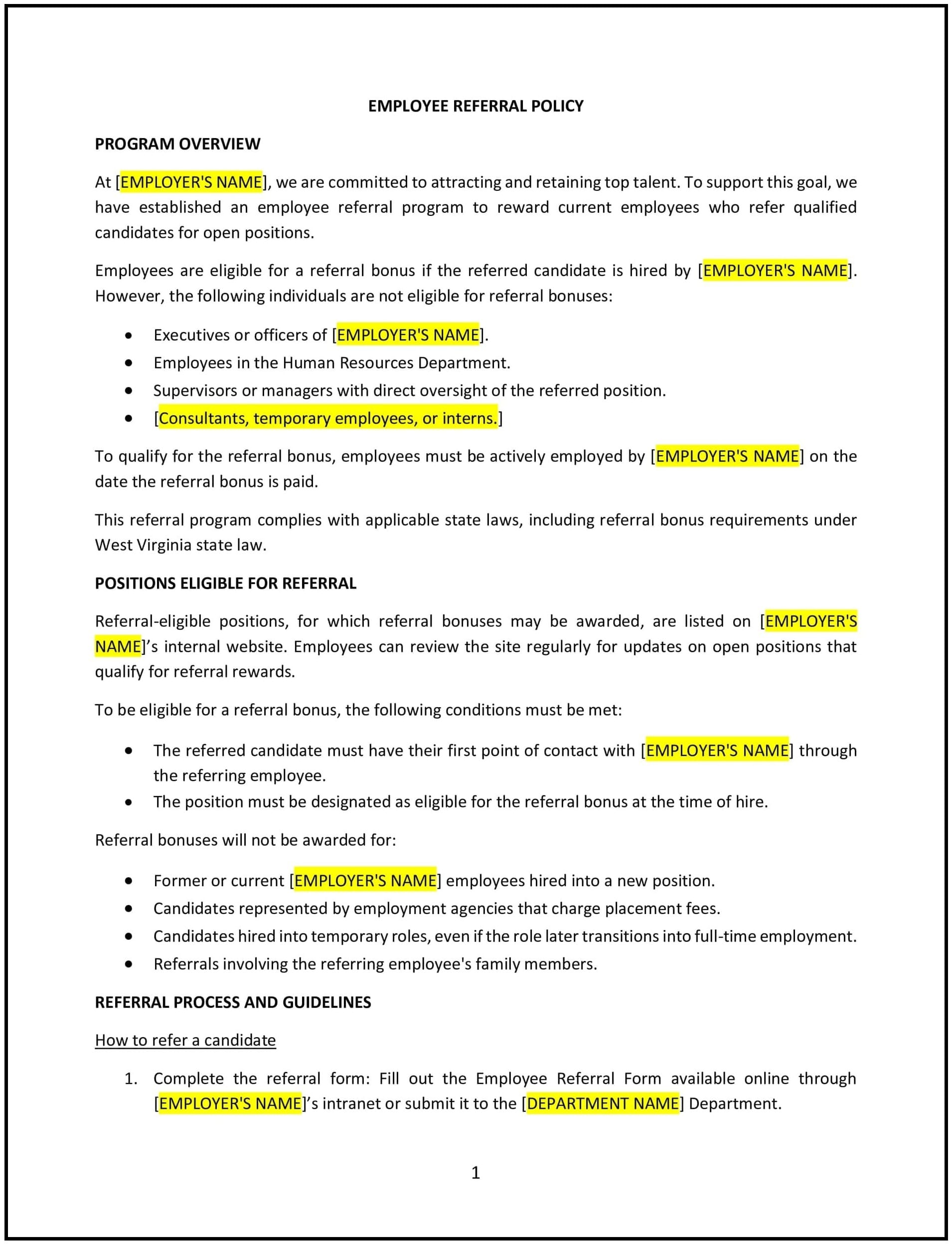Employee referral policy (West Virginia): Free template
Got contracts to review? While you're here for policies, let Cobrief make contract review effortless—start your free review now.

Customize this template for free
Employee referral policy (West Virginia)
In West Virginia, an employee referral policy encourages employees to recommend qualified candidates for open positions within the organization. This policy helps businesses attract talented individuals, reduce hiring costs, and improve employee engagement by rewarding successful referrals.
The policy outlines the eligibility criteria, referral process, rewards, and guidelines for ensuring fairness and transparency in the referral program.
How to use this employee referral policy (West Virginia)
- Define eligible referrals: Specify the types of roles that qualify for referral rewards and any restrictions, such as excluding referrals for senior management or temporary positions.
- Outline the referral process: Provide clear instructions for employees to submit referrals, including required details such as the candidate’s resume and contact information.
- Establish reward criteria: Detail the conditions under which referral rewards will be granted, such as the referred candidate successfully completing a probationary period.
- Communicate reward structure: Specify the type and value of rewards offered, such as monetary bonuses, gift cards, or additional time off.
- Support compliance: Ensure the policy aligns with West Virginia labor laws and anti-discrimination regulations, promoting fair and lawful hiring practices.
Benefits of using an employee referral policy (West Virginia)
- Attracts top talent: Leverages employees’ networks to identify qualified candidates who may not apply through traditional channels.
- Reduces hiring costs: Minimizes expenses related to external recruiting by incentivizing internal referrals.
- Improves retention: Increases the likelihood of hiring candidates who align with the company’s culture and values.
- Boosts employee engagement: Encourages employees to actively participate in the hiring process, fostering a sense of ownership and involvement.
- Ensures fairness: Provides clear guidelines to ensure the referral program is consistent and transparent.
Tips for using an employee referral policy (West Virginia)
- Promote the program: Actively communicate the referral program to employees through meetings, emails, or internal portals to ensure awareness.
- Set realistic expectations: Clearly explain the eligibility requirements for rewards and the timelines for processing referrals.
- Track referrals: Maintain a record of all referrals and their outcomes to ensure transparency and accountability.
- Celebrate success: Publicly recognize employees whose referrals lead to successful hires to encourage participation.
- Review regularly: Update the policy as needed to reflect changes in West Virginia laws, workforce needs, or company objectives.